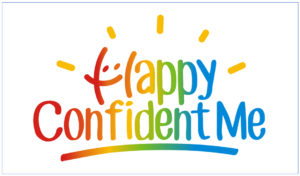Hearing our children say “It’s not my fault!” can really be upsetting for parents. Indeed, those four simple words can make you think a number of things: that your child lacks empathy; that they aren’t willing to take responsibility for their actions or that they aren’t ready to deal with the consequences of those actions. No parent wants to think of their child displaying these characteristics.
Firstly, it’s crucial to recognise that ‘playing the blame game’ is a completely natural and important part of a child’s development, so if your child does have a tendency to avoid taking responsibility for their actions, you shouldn’t panic, feel guilty or worry about this. When children fall out with their siblings or become embroiled in arguments and disagreements with their friends at school, it’s important to recognise that these experiences are helping them to learn and develop important life skills. Conflict helps children to learn empathy and nurtures their ability to negotiate and develop problem-solving skills.
When our children use “It wasn’t my fault!” to try to avoid taking responsibility for their actions, it’s much more effective to encourage them to acknowledge the part they played, and help them move forward by finding a solution rather than focusing on causal factors and shaming the ‘aggressor’ in the situation. Any blame or shame directed from a parent to their child will invariably put the child in defensive mode and increases the likelihood that they will try to avoid taking responsibility for their actions by claiming “It’s not my fault!”. So even though those words are the last thing that any parent wants to hear, we are often the reason for our children using them in the first place!
So, the next time your child uses “It’s not my fault!” as a defence for their actions, instead of reacting in anger or frustration, try applying the following highly effective tools adapted from ‘Kids Don’t Come With a Manual – The Essential Guide to a Happy Family Life‘.
Logical Consequences
Firstly, it’s important to refrain from punishing your child immediately as this will only serve to make them afraid and could weaken the strength of the connection you have with them. Indeed, there is a wealth of research that suggests that punishment is damaging to children and can have negative long-term implications. However, it is essential to make children accountable for their actions and the way to do this is by implementing Logical Consequences.The key to making this different from conventional forms of punishment is to make sure that your child does not feel shamed by the experience, and to ensure that the consequences are related to your child’s actions. This helps them to understand their responsibility and the part they had to play in the situation.
For more information on why punishment is ineffective in the long-term and how to apply logical consequences instead, read our article, ‘How to make children accountable for their actions’.
Problem Solving
Once children understand that actions have consequences and are ready and willing to take responsibility for their actions, you can then ‘coach’ them towards finding effective solutions to the mistakes they have made. It is much more effective because it focuses on empowering children by developing their problem-solving skills rather than focusing on blame or punishment. This will allow you to teach your children to think for themselves and encourages them to be responsible for their own actions, which makes it far more effective than any other form of discipline.
For an example of how to implement a problem solving session during a Family Meeting, read our article ‘The Magic of Family Meetings’.
Modelling
It is important that you take responsibility for your own actions and emotions if you wish for your children to do the same. So if you lose control and you end up acting in a way that you regret, it is important to be prepared to apologise because if you show your children that you are willing to take responsibility for your mistakes, then they are far more likely to take responsibility for theirs.













































